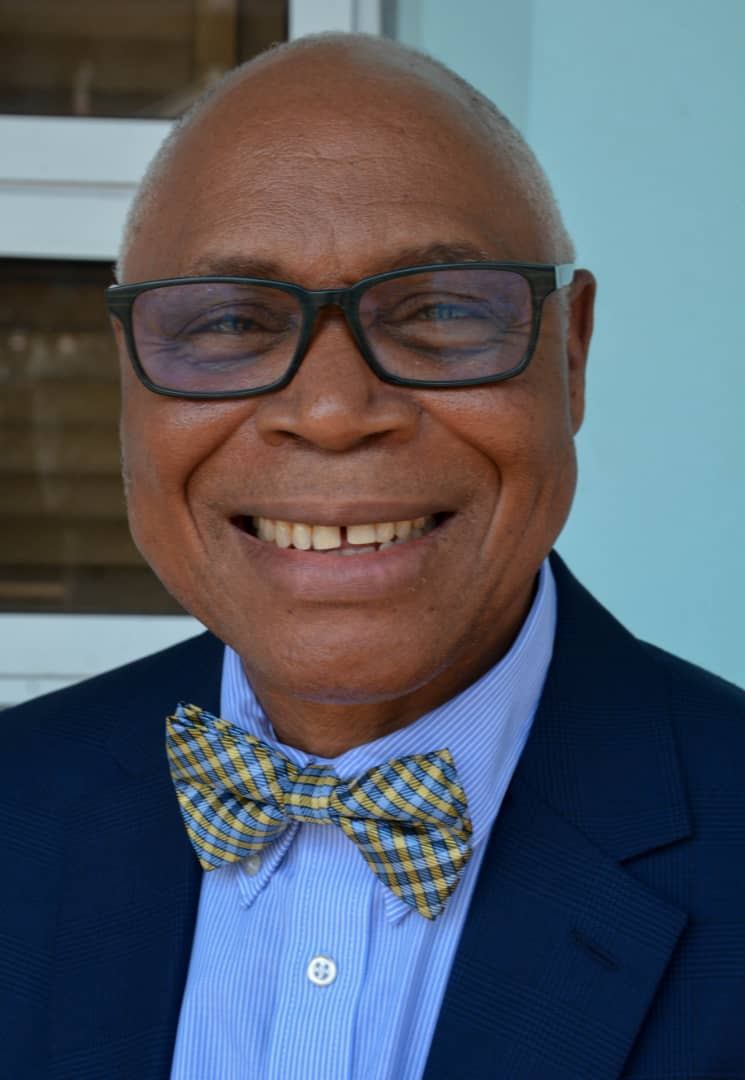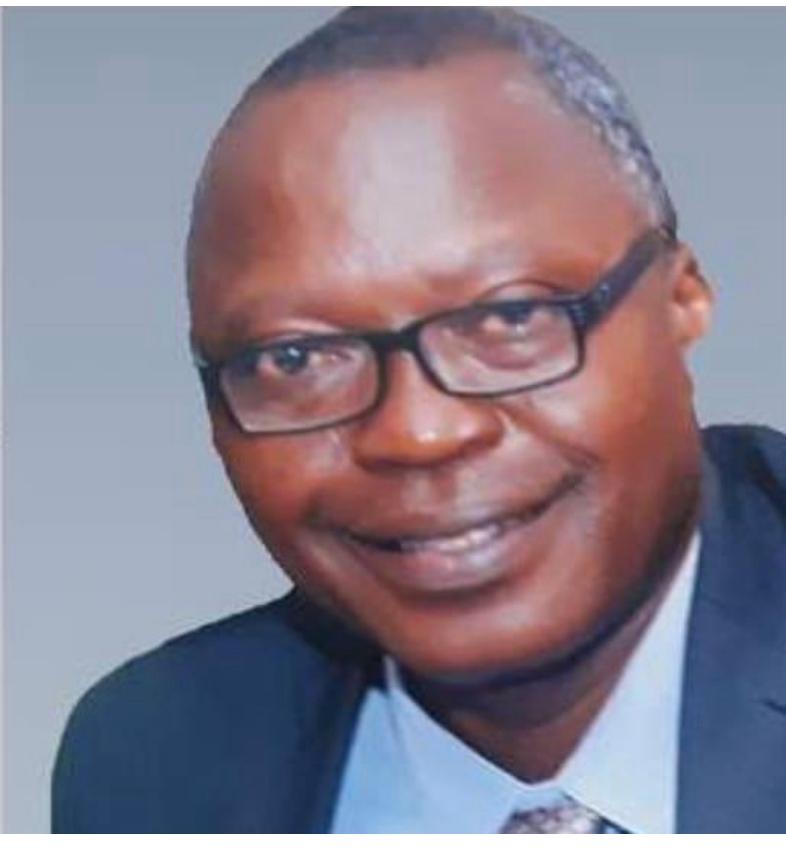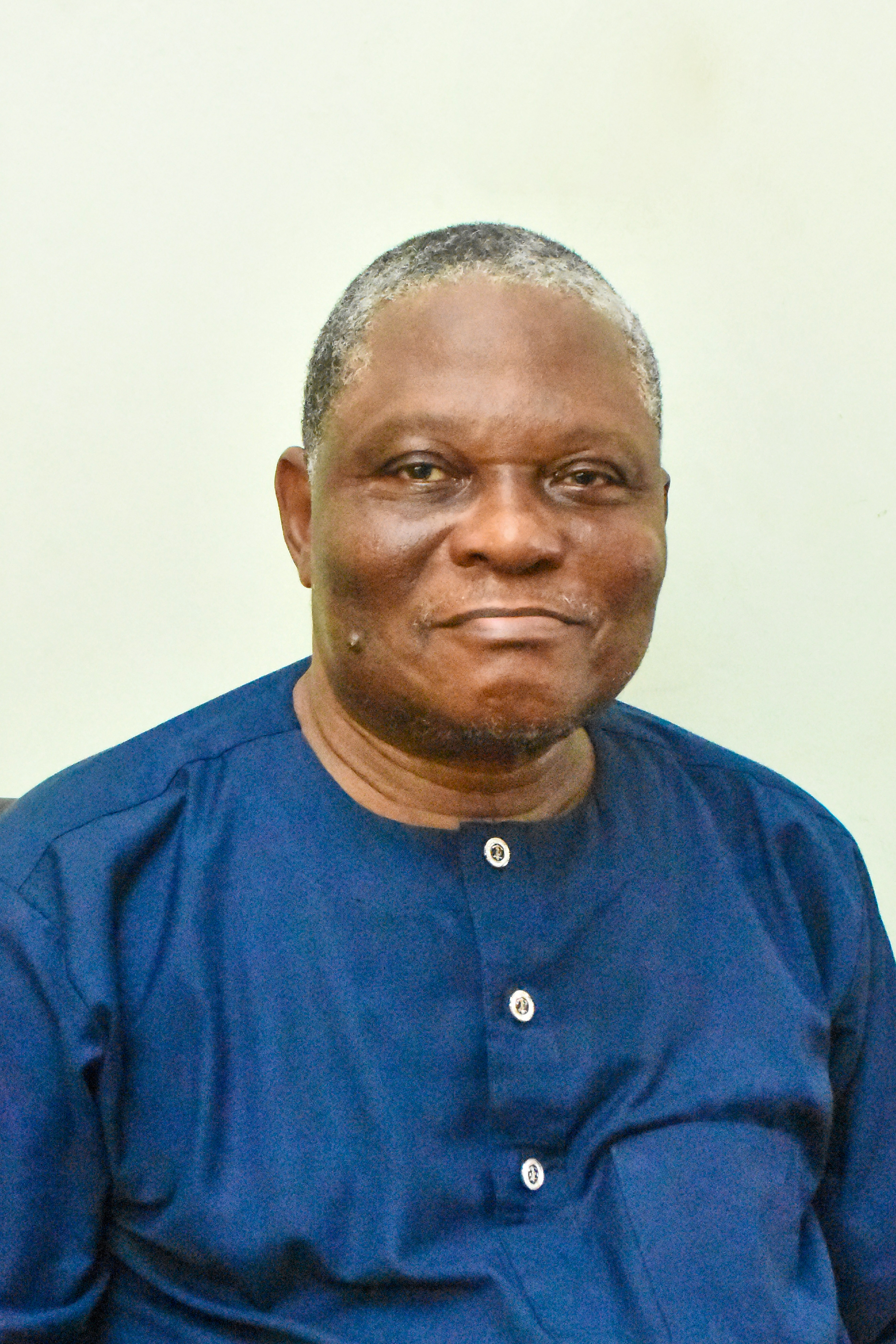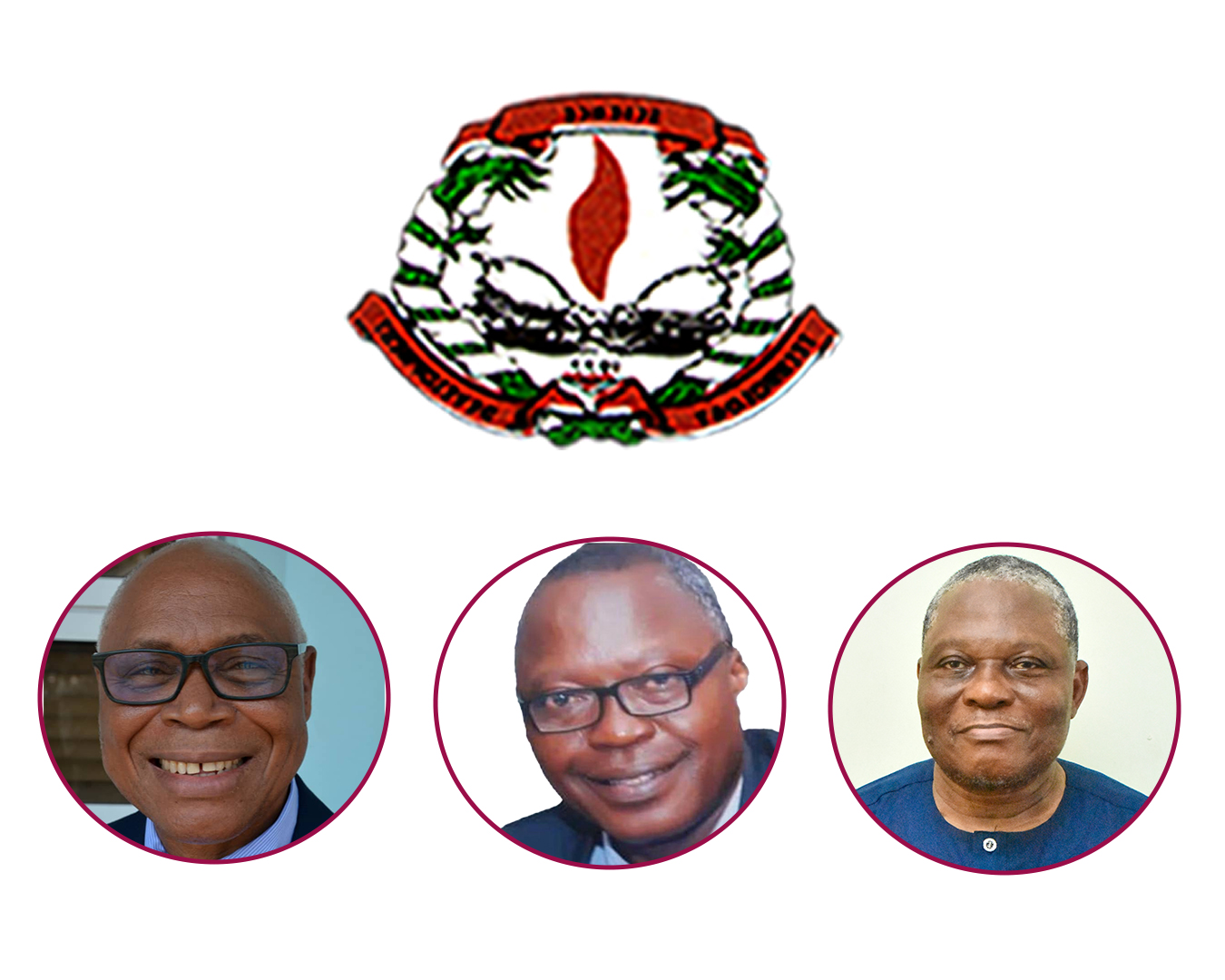The Provost, College of Medicine, University of Ibadan, Professor T.O.Ogubdiran, FAS is pleased to announce the appointment of three erudite scholars from the College into the distinguished Nigerian Academy of Science.
The pronouncement which was made public on January 23rd , 2025 was received with joy all around. The three newly named Academicians are Prof John Anetor of Chemical Pathology, Professor Ganiyu Olatunbosun Arinola, an immunologist and Prof Adegoke. G. Falade, a paediatric pulmonologist
They have all been made fellows of this prestigious body in recognition of their contributions to science and the community.
The Nigerian Academy of Science is the foremost independent scientific body in the country established in 1977 for the development, acquisition and promotion of scientific knowledge. The academy occupies a vantage position to bring scientific knowledge and evidence to bear on the policies and strategies that drive science, technology and innovations in Nigeria.
The Provost, Prof .T.O.Ogundiran extends hearty congratulations to the three fellows who have now joined the ranks of Nigeria’s top echelon in scientific discourse.
Here, we present short biographies of the fellows with indications of the specific fellowships they were awarded.
 John Anetor attended St Anthony’s Catholic Primary School, Uromi, Edo State and Government College Ughelli (GCU), Delta State for his Secondary education. He holds a PhD in Chemical Pathology from the University of Ibadan, and postdoctoral training at the Osaka City University Medical School, Osaka, Japan. His undergraduate education was in medical laboratory science and here he won the prize for the ‘Best Academic Student’. He was also the best graduating student in his MSc set.
John Anetor attended St Anthony’s Catholic Primary School, Uromi, Edo State and Government College Ughelli (GCU), Delta State for his Secondary education. He holds a PhD in Chemical Pathology from the University of Ibadan, and postdoctoral training at the Osaka City University Medical School, Osaka, Japan. His undergraduate education was in medical laboratory science and here he won the prize for the ‘Best Academic Student’. He was also the best graduating student in his MSc set.
John Anetor is a Professor of Chemical Pathology and Toxicology and the immediate past Head, Chemical Pathology Department. Professor Anetor is a member of many learned and professional societies; Fellow, Academy of Diagnostics and Laboratory Medicine, (FADLM), Academy of Toxicological Sciences (F-ATS), Royal Society of Chemistry (FRSC, UK), American College of Nutrition (FACN), Institute of Biomedical Science UK (FIBMS, FCMLS (Nig) , Life Member Environmental Mutagen Society of India (EMSI) and a European Registered Toxicologist (ERT) among others. He is a Fellow, Academy of Medicine Specialties of Nigeria (FAMedS) in 2024.
Professor Anetor is a passionate graduate teacher and has supervised over 15 PhD candidates many of whom are in the Professorial cadre. John Anetor was a Visiting Professor and Research Consultant, Cumming School of Medicine, University of Calgary, Canada. He chairs the International Federation of Clinical Chemistry and Laboratory Medicine (IFCC) Task Force on Environmental Impact of Laboratory Medicine (TF-EILM) and represents IFCC at the WHO as ‘Non- State Actors in Official Relations’.
His research focuses on investigating toxic states, including chemical carcinogenesis, and he examines the possibilities of amelioration with nutritional factors, based on the antioxidant hypothesis including chemoprevention, employing molecular mechanisms. He was a Member of the National Committee for the Removal of Lead from Nigeria’s gasoline, a project coordinated by the World Bank. He was Principal Consultant, Federal Ministry of Health, ‘Consultancy for National Lead Poison Elimination, Treatment and Strategic Intervention Scheme’.
John Anetor was a two-term Member, National Health Research Ethics Committee (N-HREC) and has won several grants and many fellowships. He is the Section Editor, Chemical Pathology, African Journal of Laboratory Medicine, Cape Town. He has over 165 publications with 2270 Google Scholar citations, h-index 25 and i-10 index 46.
John Anetor is married to Gloria; a Professor of Public Health Education and the marriage is blessed with four children and two grandsons. He is a committed Catholic and enjoys the following hobbies:gardening, photography, hiking, reading and analysis of international affairs.
 Ganiyu Olatunbosun ARINOLA finished from University of Port -Harcourt as the Best Graduating Student in his B.Sc. programme and enjoyed the National Merit/Scholarship Award. He obtained M.Sc and Ph.D degrees in Immunology from University of Ibadan.
Ganiyu Olatunbosun ARINOLA finished from University of Port -Harcourt as the Best Graduating Student in his B.Sc. programme and enjoyed the National Merit/Scholarship Award. He obtained M.Sc and Ph.D degrees in Immunology from University of Ibadan.
He joined the Department of Immunology and rose through the ranks to the Professorial cadre in 2007. His doctoral research established that immune-response in Nigerian school children habouring Schistosoma haematobium parasite was adequate, which made the infected schoolchildren tolerate the parasite for a long period.
Further in his research, for is postdoctoral research with the World Health Organization(WHO) Immunology Center, Switzerland revealed that cytokine switch in Leishmania major -infected pregnant rats, lead to the elimination of the parasite and pregnancy-loss.
His other contributions to knowledge in the field of immunology include evidence that:
i. cytokine imbalance at 2nd trimester resulted to spontaneous or recurrent abortion in pregnant women.
ii. low birth-weight- or preterm- babies were deficient in different aspects of phagocytic processes.
iii. chronic uses of wood/kerosene stove, pesticides(dichlovors/Ota-piapia), skin- lightening creams or alcoholic beverages stimulated inflammatory responses, hypoxia and respiratory bursts.
iv. ticks were capable of transmitting blood-borne pathogens.
v. patients living with sickle-cell anaemia responded adequately to Pneumococcal vaccine.
vi. COVID-19 patients in Ibadan Isolation Center exhibited mild inflammatory responses and herd immunity had arisen among populace before the administration of COVID-19 vaccines.
vii. COVID-19 vaccines had different efficacies of antibody production in Nigerians.
Ganiyu Olatunbosun Arinola has benefited from several travel fellowships and research grants. He has been External Examiner/Visiting scholar to Universities within and outside Nigeria.
He has published over 250 articles in peer-reviewed journals (Google-scholar h-index=31), contributed Chapters in Immunology textbook (Basic Immunology for Students of Medicine and Biology edited by L.S. Salimonu), reviewed a Chapter in “A Compendium of Clinical Medicine” by A.A.Falase and O.O.Akinkugbe, supervised 18 B.Sc./B.M.L.S students long essays,30 M.Sc. dissertations, 12 Ph.D. theses and 1 M.D thesis.
He has served on several committees in University of Ibadan, served as Head of Chemical Pathology Department and Head of Immunology Department. He is the President of Nigerian Society for Immunology, a member of ARETTA clinical trial of breast cancer patients and a member of CAAPA,the consortium that determined asthma related genes in African-Americans and Africans.
 Professor A.G. Falade is a paediatric pulmonologist and one of the 20 commissioners for the Lancet Global Health Commission on Oxygen Security that will be launched on 18 February 2025.
Professor A.G. Falade is a paediatric pulmonologist and one of the 20 commissioners for the Lancet Global Health Commission on Oxygen Security that will be launched on 18 February 2025.
He successfully defended a Doctor of Medicine Thesis at University of Ibadan in 1999 titled: Pneumonia in Malnourished Gambian Children, showing that Streptococcus pneumoniae and Haemophilus influenzae type b (Hib) are important causes of community-acquired pneumonia(CAP) in severely malnourished children leading to the successful trial of Hib and pneumococcal conjugate vaccines in children irrespective of their nutritional status.
In addition, the study showed that blood culture may not always provide the complete aetiological diagnosis of severe CAP, hence the need for lung aspirate culture in vaccine study.
As part of the International Study of Asthma and Allergies in Childhood, and Global Asthma Network Phase I, his team defined for the first time, the time trend in symptoms of asthma among school children in Ibadan, over a period of 23 years.
Professor Falade led the Oxygen Implementation Project in 12 secondary-level hospitals in southwest Nigeria, reducing case fatality rate by 50% in under-5 pneumonia deaths.
He brings significant depth to the understanding of the challenges of addressing hypoxaemia, both at the local level and the global scale. He was involved in synthesis of evidences, and participated in national stakeholder meetings to develop and revise national oxygen policies, clinical guidelines, and new oxygen scale-up strategies in Nigeria, in which greater emphasis was laid on pulse oximetry and systems approach needed to improve oxygen access.


